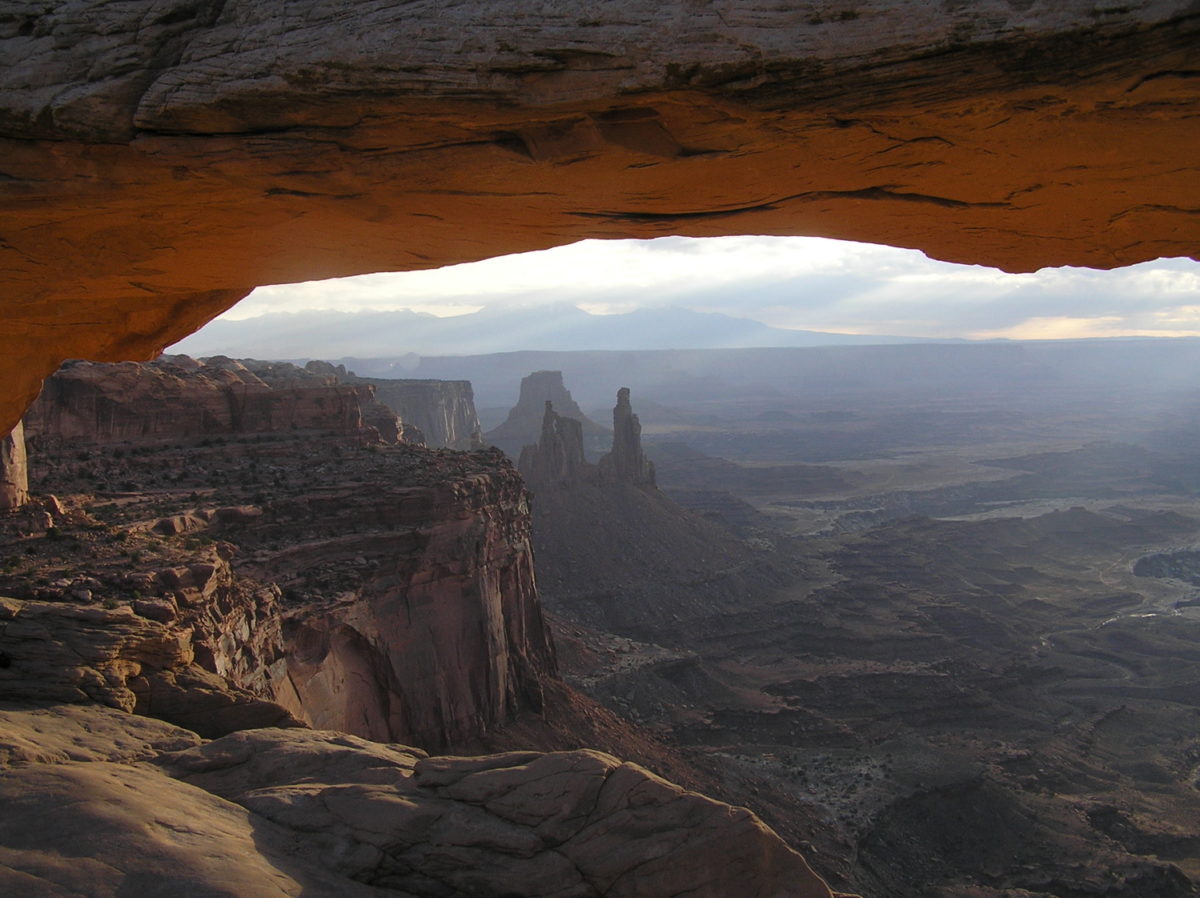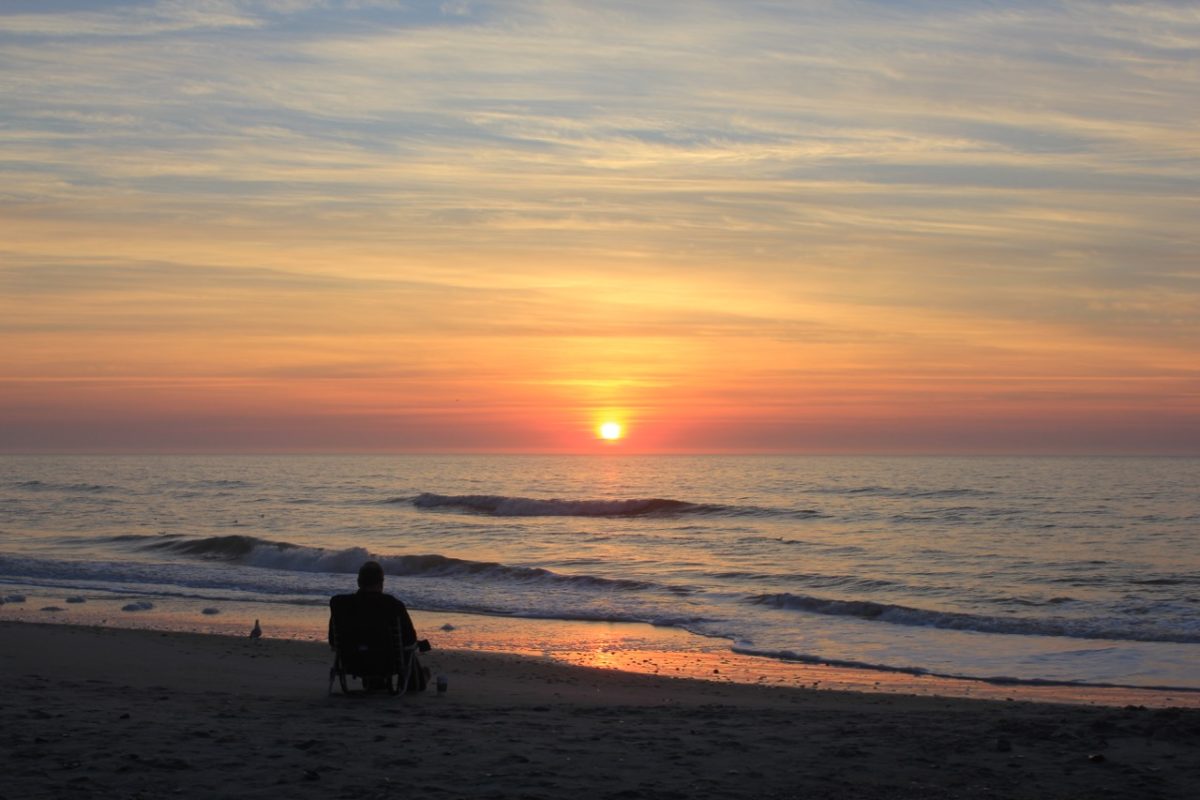Dawn at Mesa Arch. One of life’s true high-five moments. It never disappoints. Regardless of season.
The sun, as it crests the La Sal Mountains, ignites the arch’s underside like the coil on a stovetop burner turning it from brick red to pumpkin orange. It’s Mom Nature’s version of desert psychedelia. Pure zow.
I shared the moment with approximately 20 strangers. Mostly camera buffs equipped with high-powered cameras and multiple lenses. Nature paparazzi.
On the hike back to my car I conversed with a lady from Connecticut who shared that her husband called her crazy for getting up before dawn and then had the audacity to suggest that he would experience the sunrise, from the comfort of his hotel bed, through her Instagram post.
It made me think of the seminal Apple ad from the 1980s that said, “Here’s to the crazy ones. The misfits. The rebels. The troublemakers, The round pegs in the square holes. The ones who see things differently. ”
Here’s to the crazy ones, indeed.
Crazy, of course, is a matter of perspective. But in this day of screen obsessions, when we, on average, now spend almost two hours per day on social media, which, over the course of one year, shockingly equates to almost a full month squandered to mindless distraction, we need to ask ourselves: What stripe of crazy do we want to be?
The one who dares to hit a desert trail before dawn in hope of recharging life? Or the one in constant search of an electrical outlet for recharging a phone?
The one who pursues new experiences? Or the one who pursues new Twitter followers?
The one who sits wrapped in a down sleeping bag atop a mountain pondering the night sky’s infinite mysteries? Or the one who sits atop a recliner staring at apps with all the answers?
The one who embraces getting lost in a forest? Or the one who feels lost when without WiFi?
The one who spends an afternoon in cold, pouring rain reading a trout stream? Or the one who spends an afternoon in Starbucks reading Facebook posts?
The one who understands that every overturned canoe, every leaky tent, every three-mile portage, every busted surfboard, every snapped bicycle chain on a remote mountain single track, every lost ski in backcountry powder is but a temporary inconvenience that will evolve into a life-long, hell-yeah memory? Or the one who doesn’t understand that every hour spent mindlessly scrolling through Facebook is time being taken away from pursuing kick-ass experiences and fire-in-the-belly aspirations.
The one who understands life begins outside the comfort zone? Or the one who who wishes there was an expand-your-comfort zone app?
Get crazy. Get outside. Get inconvenienced. Get muddy. Get lost. Get sunburned. Get hungry. Get cut. Get bit. Get wet. Get chased. Get curious. Get thirsty. Get cold. Get bewildered. Get astonished. Get living. Or, in other words, get off your phone.


